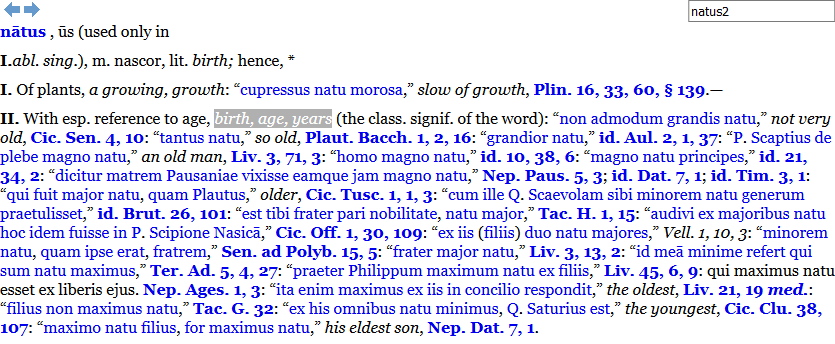Following on from the question "Using Genitive & Infinitive To Describe Characteristics"; Joonas (26/6/19): "adulescentis est maiores natu revereri." = "It is of a young person to respect his/ her elders/ ancestors.
What is the purpose of "natu" given that "maiores" means "elders/ ancestors", without any help?
At fist sight "natu" = "by birth"; but, that does not fit here.
Looking around the net: "natu salu" = "health leaders". Think salu should be "salutes"?
"My Memory" site: "a Mileto autem mittens Ephesum vocavit maiores natu ecclesia." = "And from Miletus he sent to Ephesus, and called the elders from the church."
"nec corripuit eum pater suus aliquando dicens quare hoc fecisti erat autem et ipse pulcher valde, secundus natu post Absalo (Absolem)." = "And his father had not displeased him, at any time, saying: "Why did you do this?" And he, himself, was a lovely man; and his mother bore him after Absolom."
Where is the ref. to "mother" here? Is it "secundus"; then "secunda"--the-secondary-one; or, the-following-one; wife being seen as a chattel (assumption)? Perhaps "secunda natu" = his wife, by (gave) birth...? (My confidence is low.)
"venit Moses et convocatis maioribus natu populi exposuit omnes sermones quos mandaverat Dominus." = "And Moses came, with the Elders of the people, having been called and laid before them all the words which the Lord had commanded."
Any thoughts on "natu"?
